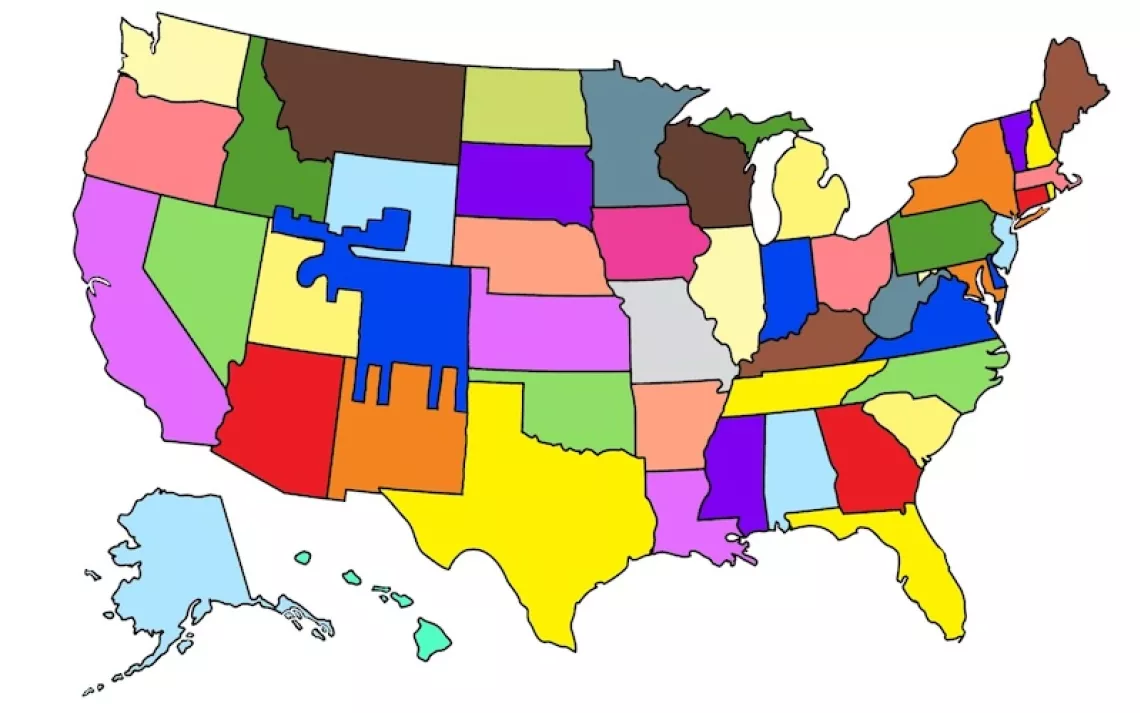How to Spot Greenwashing
Deceptive advertising from corporate polluters

You've seen the ads. Lush green forests. Humpback whales breaching. Stunning birds of prey in flight. All beautifully reproduced. But something is a little off. Somewhere on the page, on the corner of the television screen, or at the back of the brochure, you discover that this is not by the Sierra Club or Greenpeace. Instead, you see a tagline for a chemical or oil corporation. You've just experienced greenwash.
Greenwashing may sound so preposterous it's hard to believe anyone would fall for it. But thanks to slick advertising and media efforts-reinforced with numbing repetition- people now associate environmental images with corporate polluters. A few years after Chevron began its "People Do" campaign, the multinational's polling found that Chevron was the oil company Californians considered most likely to protect the environment. Not so fast: In 1993, Greenpeace found that Chevron is a major contributor to political groups whose aim is to relax environmental regulations. Here are a few types of greenwashing you should watch for:
Seducing you with beauty: The simplest form of greenwash is the environmental-image advertisement. Here a company name, like Dow Chemical, or a product, such as a gas-guzzling sport-utility vehicle, is presented in a gorgeous setting. No specific environmental claims are made, but the advertisers hope the ad will create a subconscious link between their company and natural beauty.
Impressing you with tangential environmental projects: Here the company gets more specific. It talks about how many acres of wetlands it preserves, the biodiversity studies it funds, or the endangered species that roost on its properties. For example, a Phillips Petroleum ad with a lovely photo of foraging shorebirds touts the oil giant's contribution to a wetlands restoration effort. Often it turns out that the do-good projects were forced on the company by regulators. In some cases, the cost of the project is less than the cost of the ads to publicize it.
Distracting you with incremental advances: Sometimes a company will call attention to its improved safety record, reduced pollution, or new energy-efficient facilities. These steps are commendable, but cover up the destructiveness of the company's core business. With the hook "Shouldn't something built to take you where the air is fresh leave some fresh air for the rest of us?", Ford tells us that its SUVs qualify as low-emission vehicles. That's true, but the EPA rating the carmaker relies on does not consider carbon dioxide, the primary global-warming culprit. A Ford Excursion emits nearly three times more CO2 than the Honda Civic HX.
Gaining sympathy by adopting environmentalists' lingo: Some companies employ PR firms so skilled at co-opting environmental rhetoric you'd think they invented it. A manufacturer that uses toxic chemicals might call its process "pollution prevention," without telling you it has redefined the phrase to include toxic-waste incineration. After Rainforest Action Network christened its alternative-energy campaign "Beyond Oil," BP countered with a tagline of its own, saying its acronym stands for "Beyond Petroleum." When reading these ads, keep in mind a company's core product: Less than one percent of BP's investment is in renewable energy.
Avoiding regulation by claiming businesses will solve problems themselves: A common form of greenwash is to publicly claim a commitment to the environment while quietly lobbying to avoid regulation. If the company suggests "self-regulation," its public image-making is probably greenwash. While ExxonMobil's "Promise of Technology" ads praise technology that can avert global warming, the multinational (a member of the Global Climate Coalition, the industry group formed to oppose the 1997 Kyoto Protocol) lectures us that "markets-not politicians-will inevitably decide which products are successful." ExxonMobil doesn't mind the huge subsidies it gets from those politicians, however.
Feigning concern for the world's poor: Many corporations violate human rights around the world. To polish their image, they sloganeer about anti-poverty programs, economic development, and human rights. Oil, tobacco, and bioengineered-food companies all engage in this new shade of greenwash. For example, in an ad that tries to counter allegations of human-rights violations in Nigeria, Shell presents the image of an African woman behind the oil company's logo and asks, "None of our business . . . or the heart of our business?"
Anytime you come across a slick ad that doesn't try to convince you to purchase something, ask yourself what it is trying to get you to buy. Often, it's a favorable impression of the sponsoring corporation, one that just might have high environmental costs down the road.
 The Magazine of The Sierra Club
The Magazine of The Sierra Club







